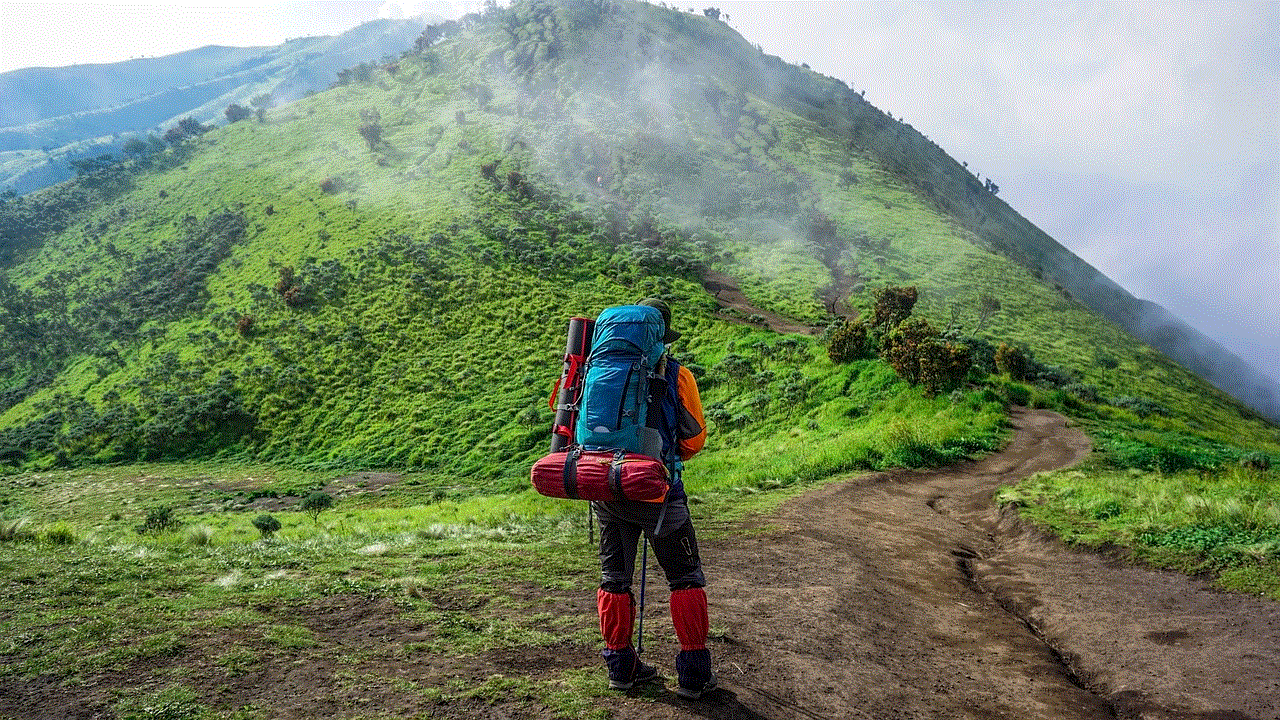samsung private mode hack
Samsung private mode is a feature that allows users to keep their files, photos, and apps hidden from prying eyes. It acts as a secure folder within the device, accessible only to the user with a password or fingerprint scan. This feature has been praised for its ability to protect sensitive information, but it has also been subject to various hacks and exploits. In this article, we will delve into the world of Samsung private mode and discuss how it can be hacked, as well as ways to prevent such breaches.
Firstly, let’s understand how Samsung private mode works. When a user activates private mode, it creates a secure folder where they can store their private files, photos, and apps. The folder is encrypted, meaning that the files cannot be accessed without the password or fingerprint scan. This ensures that even if someone gains access to the device, they will not be able to view the private content without the user’s authorization.
However, despite the high level of security, Samsung private mode has been subject to hacks and breaches. One of the most common ways to hack private mode is through brute force attacks. This involves using a computer program to guess the password until it matches the correct one. This type of attack can be successful if the password is weak or easily guessable.
To prevent this type of hack, it is crucial to use a strong password for private mode. This means using a combination of letters, numbers, and special characters that cannot be easily guessed. It is also recommended to change the password regularly to ensure the security of the private mode.
Another way to hack private mode is through the use of malware. Malware is malicious software that can be installed on a device without the user’s knowledge. Once installed, it can gain access to private mode and extract sensitive information. Malware can be downloaded through various means, such as downloading apps from untrusted sources or clicking on suspicious links.
To protect against malware, it is essential to only download apps from trusted sources such as Google Play Store or Samsung’s Galaxy Store. It is also crucial to be cautious when clicking on links, especially from unknown sources. Installing antivirus software on the device can also help detect and remove any potential malware.
Apart from external hacks, Samsung private mode can also be hacked through internal exploits. These are vulnerabilities within the device’s operating system that can be exploited to gain access to private mode. One of the most significant internal exploits was discovered in 2017, where a security researcher found a way to bypass the fingerprint scanner and gain access to private mode.
To prevent such exploits, it is crucial to keep the device’s operating system up to date. Manufacturers regularly release software updates that fix any known vulnerabilities. By keeping the device updated, users can ensure that their private mode is protected from internal hacks.
In addition to these common hacks, there have been reports of a more sophisticated method of hacking private mode. This involves using advanced hacking tools to bypass the device’s security and gain access to the private mode. These tools are often used by professional hackers and are not easily accessible to the general public.
To protect against such advanced hacks, it is essential to take extra precautions, such as using two-factor authentication. This means requiring a second form of verification, such as a security code sent to a trusted device, when accessing private mode. It adds an extra layer of security and makes it much harder for hackers to gain access.
Apart from these specific hacks, there are also some general safety measures that users can take to keep their private mode secure. These include never sharing the private mode password with anyone, avoiding using public Wi-Fi when accessing private mode, and regularly backing up the files stored in private mode.
In conclusion, Samsung private mode is a useful feature that provides an extra layer of security for sensitive information. However, like any other technology, it is not immune to hacks and breaches. To ensure the security of private mode, it is crucial to use strong passwords, be cautious when downloading apps and clicking on links, keep the device’s operating system up to date, and use two-factor authentication. By following these safety measures, users can enjoy the benefits of private mode without worrying about potential hacks and breaches.
cash app age restriction
Cash App Age Restriction: Protecting Young Users in the Digital Payment World
Introduction:
In today’s digital age, the use of mobile payment apps has become increasingly popular. Among the various digital payment platforms available, Cash App has gained significant attention for its convenience and user-friendly interface. However, when it comes to using Cash App, there are age restrictions in place to protect young users. In this article, we will explore the age restrictions on Cash App, why they are important, and how they contribute to creating a safe and secure environment for users.
1. What is Cash App?
Cash App, developed by Square Inc., is a peer-to-peer payment app that allows users to send and receive money easily through their smartphones. It offers various features like direct deposit, investing in stocks, and even purchasing Bitcoin. With its intuitive design and widespread adoption, Cash App has become a go-to choice for many individuals looking for a quick and hassle-free payment solution.
2. Age Restrictions on Cash App:
To comply with legal regulations and protect young users, Cash App has set an age restriction. Users must be at least 18 years old to create an account and use the app. This age restriction ensures that individuals using the app have the necessary legal capacity to engage in financial transactions and understand the potential risks associated with digital payments.
3. Legal Compliance:
Age restrictions on Cash App are not arbitrary; they are in place to comply with the law. In most jurisdictions, individuals under the age of 18 are considered minors and lack the legal capacity to enter into contracts. By setting an age restriction, Cash App ensures that users are legally capable of engaging in financial transactions and are responsible for their actions.
4. Protecting Young Users:
One of the primary reasons for implementing age restrictions on Cash App is to protect young users from potential financial risks and fraudulent activities. Young individuals may not have the necessary financial literacy or experience to navigate the complexities of digital payments. By enforcing an age restriction, Cash App aims to prevent minors from falling victim to scams or making uninformed financial decisions.
5. Preventing Unauthorized Access:
Another crucial aspect of age restrictions is to prevent unauthorized access to the app. By setting a minimum age requirement, Cash App reduces the likelihood of children or teenagers gaining access to the app without the knowledge or consent of their parents or guardians. This helps protect the financial security and privacy of individuals using Cash App.



6. Age Verification Process:
To ensure compliance with age restrictions, Cash App employs an age verification process during the account creation phase. Users are required to provide personal information, including their date of birth, to confirm their eligibility. Cash App may also request additional documentation, such as a government-issued ID, to verify the user’s age.
7. Parental Control and Supervision:
Cash App acknowledges that teenagers may need access to money management tools and digital payment services. To cater to this need, Cash App offers a separate service called Cash App for Teens. This service allows parents or guardians to create a joint account with their teenager, providing them with a controlled and supervised environment for learning about financial responsibility.
8. Educating Young Users:
Cash App understands the importance of financial literacy. In addition to implementing age restrictions, Cash App also takes steps to educate young users about responsible money management. Through in-app notifications, informative articles, and educational resources, Cash App aims to empower young users with the knowledge and skills necessary to make informed financial decisions.
9. Ethical Considerations:
Setting age restrictions on Cash App raises ethical considerations, particularly regarding financial exclusion. Some argue that age restrictions may prevent financially responsible individuals under the age of 18 from accessing essential financial services. However, it is important to strike a balance between financial inclusion and protecting young users from potential risks, considering the legal framework and the need for responsible financial behavior.
10. Conclusion:
Age restrictions on Cash App play a crucial role in protecting young users from potential financial risks and ensuring compliance with legal regulations. By setting an age requirement, Cash App creates a safe and secure environment for users and helps prevent unauthorized access. Additionally, Cash App provides educational resources and parental control features to promote financial literacy and responsible money management. Ultimately, age restrictions on Cash App contribute to building a trustworthy and reliable platform for digital payments.
websites parents should block 2021
Title: Websites Parents Should Block in 2021: A Comprehensive Guide
Introduction:
In today’s digital era, children are exposed to a vast array of online content, both informative and potentially harmful. As parents, it is our responsibility to protect our children from inappropriate or dangerous websites. With the constantly evolving online landscape, it is crucial to stay updated on the websites that pose potential risks to our children’s safety and well-being. In this article, we will explore the top websites parents should consider blocking in 2021.
1. Pornographic Websites:
One of the most critical categories to block is adult content or pornographic websites. These sites can expose children to explicit content that is not suitable for their age. Family-friendly web filters and parental control software can help prevent accidental or intentional access to such sites. Examples of popular adult websites include Pornhub, Xvideos, and YouPorn.
2. Gambling and Betting Websites:



Gambling and betting websites can be highly addictive and detrimental to young minds. Children may unknowingly stumble upon these sites or be enticed by the allure of easy money. Blocking gambling sites like Bet365, PokerStars, and William Hill can help protect children from developing gambling-related problems.
3. Social Media Platforms:
While social media platforms have become an integral part of our daily lives, they can also expose children to various risks like cyberbullying, inappropriate content, and online predators. Parents should consider blocking or monitoring platforms such as Facebook, Instagram, TikTok, Snapchat, and Twitter to ensure their children’s online safety.
4. File-Sharing Websites:
File-sharing platforms, often used for pirated content or illegal downloads, can expose children to malware, viruses, and legal consequences. Websites like The Pirate Bay, BitTorrent, and LimeTorrents should be blocked to prevent children from accessing or downloading copyrighted material.
5. Online Gaming Platforms:
While online gaming can be a fun and social activity, excessive gaming can negatively impact children’s physical and mental well-being. Parents should consider blocking gaming platforms that promote violence, addiction, or predatory behavior. Examples include Fortnite , Call of Duty , and Grand Theft Auto.
6. Chat Rooms and Instant Messaging Websites:
Chat rooms and instant messaging platforms can expose children to online predators, cyberbullying, and inappropriate interactions. Websites like Omegle, Chatroulette, and Kik Messenger should be blocked to prevent children from engaging with strangers or sharing personal information.
7. Pro-Anorexia and Self-Harm Websites:
Unfortunately, there are websites that promote dangerous behaviors like self-harm, eating disorders, and suicide. Blocking platforms that encourage such harmful activities, such as Pro-ana sites or self-harm forums, is essential to protect vulnerable children and teenagers.
8. Online Dating Websites:
Online dating websites are intended for adults and can potentially expose children to deceitful individuals or inappropriate relationships. Blocking platforms like Tinder, OkCupid, and Match.com can prevent children from accessing these sites or engaging in age-inappropriate conversations.
9. Violent and Hate Speech Websites:
Websites that promote violence, hate speech, or extremist ideologies can negatively influence children’s values and behavior. Blocking platforms like 4chan, 8chan, and Stormfront can help shield children from exposure to harmful content and ideologies.
10. Websites Promoting Drug Abuse:



In an era where drug abuse is a growing concern, blocking websites that promote or glamorize drug abuse is crucial. Platforms like Erowid, Bluelight, and Drugs-Forum should be blocked to prevent children from accessing information that could lead to experimentation or addiction.
Conclusion:
As parents, it is crucial to stay vigilant and proactive in protecting our children from the potential risks of the internet. Blocking inappropriate websites can significantly reduce exposure to harmful content, minimize the chances of cyberbullying, and enhance online safety. By employing web filters, parental control software, and open communication, we can ensure a safer online experience for our children in 2021 and beyond.